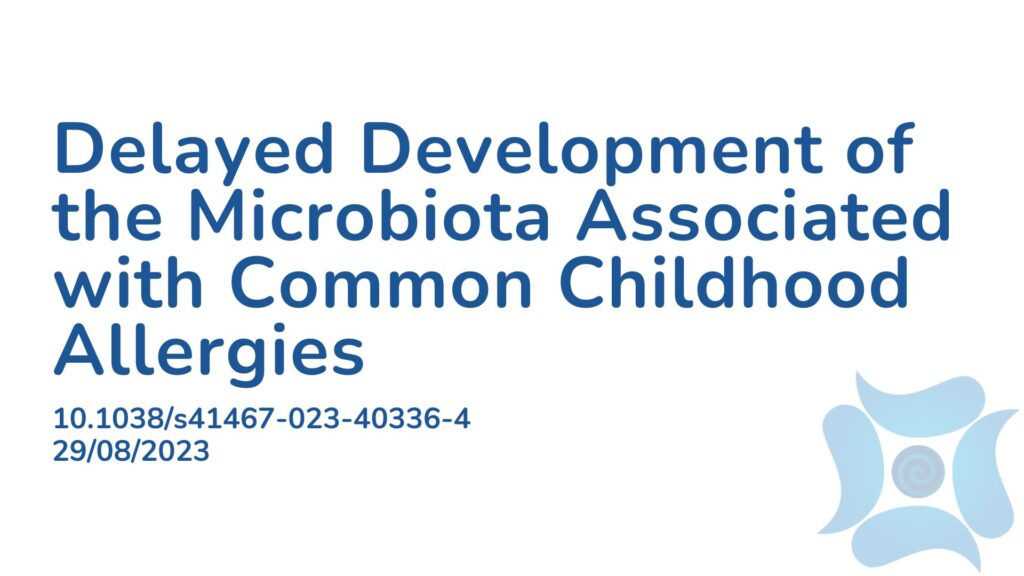Summary:
Allergic diseases affect millions of children worldwide and are influenced by social and environmental factors which change the microbiota. Early microbiota development in infants is sensitive to factors like birth-delivery mode, diet, and antibiotics, which also influence allergy risk. This study investigated the infant microbiome role in asthma, hay fever, food allergies, and eczema, which often manifest in children. The study found early-life factors and microbiome characteristics were consistently associated with allergic diagnoses at age 5. The study also found that impaired microbiota maturation at age 1 appears to be a common factor in pediatric allergies.
Abstract:
Allergic diseases affect millions of people worldwide. An increase in their prevalence has been associated with alterations in the gut microbiome, i.e., the microorganisms and their genes within the gastrointestinal tract. Maturation of the infant immune system and gut microbiota occur in parallel; thus, the conformation of the microbiome may determine if tolerant immune programming arises within the infant. Here we show, using deeply phenotyped participants in the CHILD birth cohort (n = 1115), that there are early-life influences and microbiome features which are uniformly associated with four distinct allergic diagnoses at 5 years: atopic dermatitis (AD, n = 367), asthma (As, n = 165), food allergy (FA, n = 136), and allergic rhinitis (AR, n = 187). In a subset with shotgun metagenomic and metabolomic profiling (n = 589), we discover that impaired 1-year microbiota maturation may be universal to pediatric allergies (AD p = 0.000014; As p = 0.0073; FA p = 0.00083; and AR p = 0.0021). Extending this, we find a core set of functional and metabolic imbalances characterized by compromised mucous integrity, elevated oxidative activity, decreased secondary fermentation, and elevated trace amines, to be a significant mediator between microbiota maturation at age 1 year and allergic diagnoses at age 5 years (βindirect = −2.28; p = 0.0020). Microbiota maturation thus provides a focal point to identify deviations from normative development to predict and prevent allergic disease.
Article Publication Date: 29/08/2023
DOI: 10.1038/s41467-023-40336-4




